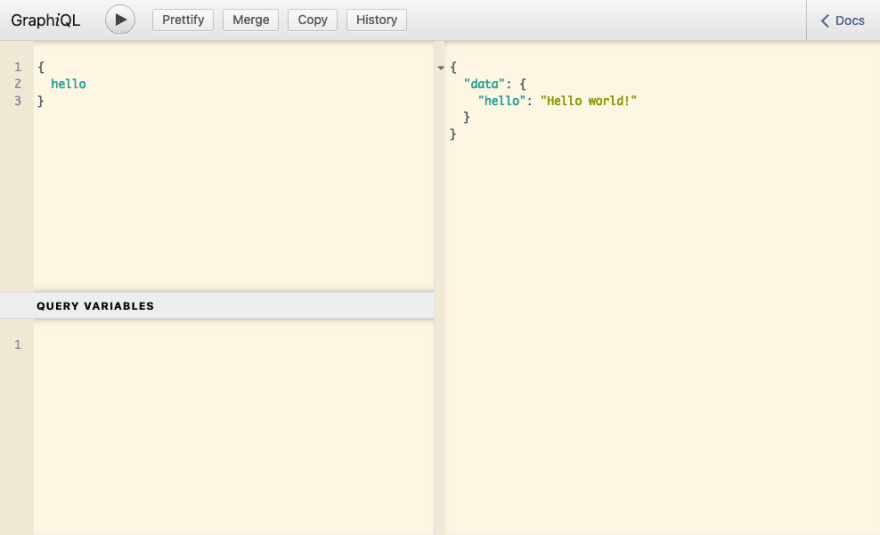This content originally appeared on DEV Community and was authored by Loïc Poullain
This article was originally published on https://foalts.org/blog/2021/04/22/version-2.3-release-notes.
Version 2.3 of Foal has been released! Here are the improvements that it brings:
- GragriQL
- Support for
.env.localfiles - Prisma documentation
- Social auth fixes
- Service available during authentication
- Streams and base64 encoding utilities
GraphiQL
From version 2.3, it is possible to generate a GraphiQL page in one line of code. This can be useful if you quickly need to test your API.
npm install @foal/graphiql
app.controller.ts
import { GraphiQLController } from '@foal/graphiql';
import { GraphqlApiController } from './services';
export class AppController {
subControllers = [
// ...
controller('/graphql', GraphqlApiController),
controller('/graphiql', GraphiQLController)
];
}
The page is also customizable and you can provide additional options to change the UI or the API endpoint.
export class GraphiQL2Controller extends GraphiQLController {
cssThemeURL = 'https://cdnjs.cloudflare.com/ajax/libs/codemirror/5.23.0/theme/solarized.css';
apiEndpoint = '/api';
options: GraphiQLControllerOptions = {
docExplorerOpen: true,
editorTheme: 'solarized light'
}
}
Support for .env.local files
Foal's configuration system already supported .env files in previous versions. As of version 2.3, the framework also supports .env.local files.
This can be useful in case you want to have two .env files, one to define the default env vars needed by the application and another to override these values on your local machine.
If a variable is defined in both files, the value in the .env.local file will take precedence.
Similarly, you can also define environment-specific local files (.env.development.local, .env.production.local, etc).
Prisma documentation
The documentation has been expanded to include examples of how to use Prisma with Foal.
Base 64 and base 64 URL utilities
Two functions are provided to convert base64 encoded strings to base64url encoded strings and vice versa.
import { convertBase64ToBase64url, convertBase64urlToBase64 } from '@foal/core';
const str = convertBase64ToBase64url(base64Str);
const str2 = convertBase64urlToBase64(base64urlStr);
Converting Streams to Buffers
In case you need to convert a readable stream to a concatenated buffer during testing, you can now use the streamToBuffer function for this.
import { streamToBuffer } from '@foal/core';
const buffer = await streamToBuffer(stream);
Accessing services during authentication
The user option of @JWTRequired and @UseSessions now gives you the possibility to access services.
class UserService {
getUser(id) {
return User.findOne({ id });
}
}
@JWTRequired({
user: (id, services) => services.get(UserService).getUser(id)
})
class ApiController {
@Get('/products')
getProducts(ctx: Context) {
// ctx.user is the object returned by UserService.
}
}
Bug Fixes
Social authentication
Social authentication controllers could sometimes return 500 errors, depending on the social provider you were using. This was due to a problem of string encoding in the callback URL. This bug has been fixed in this version.
This content originally appeared on DEV Community and was authored by Loïc Poullain
Loïc Poullain | Sciencx (2021-04-26T05:31:45+00:00) Node.JS – Foal framework – Version 2.3 release notes. Retrieved from https://www.scien.cx/2021/04/26/node-js-foal-framework-version-2-3-release-notes/
Please log in to upload a file.
There are no updates yet.
Click the Upload button above to add an update.

